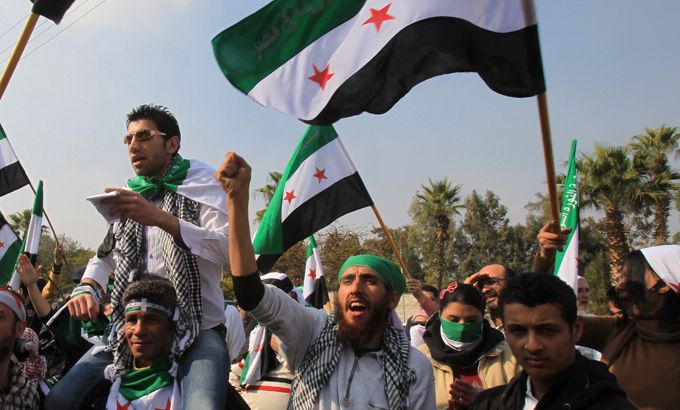UN: Syrian officials ordering mass atrocities
New report finds government officials and army guilty of murder, rape and torture of civilians, including children.

UN investigators have released a new report accusing senior Syrian government officials and leaders of the country’s military and security forces of ordering mass atrocities in efforts to crush anti-government protests since March.
The Independent Commission of Inquiry on Syria said on Monday that Syrian government forces committed crimes against humanity, including the killing and torturing of children, and held state officials responsible for murder, rape and torture.
“The commission believes that orders to shoot and otherwise mistreat civilians originated from policies and directives issued at the highest levels of the armed forces and the government,” the panel said in its report.
Speaking in Geneva, Switzerland, Paulo Pinheiro, the chairman of the UN panel, said: “Members of the Syrian army and security forces have committed crimes against humanity in their repression of a largely civilian population in the context of a peaceful protest movement.”
The panel interviewed 223 victims and witnesses, including defectors from President Bashar al-Assad’s security forces who told of shoot-to-kill orders against demonstrators and cases of children being tortured to death.
At least 256 children had been killed by government forces as of early November, with some boys sexually tortured, the panel said in its report to the UN Human Rights Council.
It also quoted one former soldier who said he decided to defect after witnessing an officer shoot a two-year-old girl in the city of Latakia, then claim he killed her so she would not grow up to be a demonstrator.
Arab League sanctions
The report came a day after the Arab League approved economic sanctions against Syria, in an attempt to further isolate the Assad government over its response to the eight-month uprising which the UN says has killed at least 3,500 people and resulted in tens of thousands of others being imprisoned.
Walid al-Muallem, the Syrian foreign minister, condemned the regional bloc’s move, calling the sanctions “a declaration of economic war on Syria”.
The Syrian government continues to blame “armed terrorists” for the violence.
Muallem also insisted that Syria could weather the sanctions.
“I reassure you that we have withdrawn 95 or 96 percent of Syrian assets [from Arab countries],” he said. “We must protect the interests of our people.”
Some 60 per cent of Syria’s exports go to Arab countries, and analysts concede the sanctions’ effectiveness will hinge largely on whether Arab countries enforce them.
Assad’s government has already been subjected to several Western sanctions, led by the US and European Union.
Diplomats in Brussels say the EU is set to tighten its measures even further, targeting Syria’s oil and financial sectors to deprive the government of more sources of funding.
EU foreign ministers, during a meeting on Thursday, would ban exports of energy industry equipment, trading in Syrian bonds and selling of software that could be used to monitor dissidents, among other financial measures.
Call for ‘decisive action’
Following the latest UN report and the Arab sanctions, the US and Germany led Western calls on Monday for the UN Security Council to finally take “decisive action” against Syria’s atrocities.
“It is past time for the Security Council to take much more decisive action with respect to Syria,” Susan Rice, the US ambassador to the UN, said.
“Now with the Arab League having acted and it becoming increasingly clear even for those that would rather deny it, that the Assad regime has participated in outrageous and now documented atrocities. The patience of its neighbors and now the international community has evaporated.”
The council cannot “stand idly by”, Peter Wittig, Germany’s UN envoy, said.
The 15-member council was split last month by a European-drafted resolution condemning Assad’s crackdown. Russia and China vetoed the resolution, while Brazil, India, South Africa and Lebanon abstained.
Because of the internal divisions, the Security Council has so far only agreed to a statement, with less moral weight, against the violence in Syria. The 193 member UN General Assembly passed a resolution last week deploring the violence.
‘Military option’
In the latest development on Tuesday, Turkey, a former ally of Syria, also stepped up its criticism of the government’s crackdown on protesters.
Ahmet Davutoglu, Turkey’s foreign minister, told Kanal 24, the Turkish TV news channel, that his country does not want to consider a military option for intervention in neighbouring Syria, but that it is ready for any scenario.
“We hope that a military intervention will never be necessary. However, the Syrian regime has to find a way of making peace with its own people to eliminate this option.”
Davutoglu also said the international community may decide a buffer zone is needed in Syria if tens of thousands of people try to flee the violence there.
“If the current pressure will open the way for a large-scale refugee movement, if tens, hundreds of thousands of people start advancing towards Iraq, Lebanon, the Turkey borders, not only Turkey, then the international community may be required to take some steps. But it will not be up to Turkey’s appeal only,” he said.
Amnesty International, the London-based rights group, has called on the Security Council to refer the case to the International Criminal Court, order an arms embargo and freeze the assets of Assad and his associates.
Human Rights Watch, the New York-based rights monitor, said the UN Human Rights Council must refer the Syria case to the Security Council and call for it “to impose targeted sanctions and refer the situation in Syria to the International Criminal Court”.